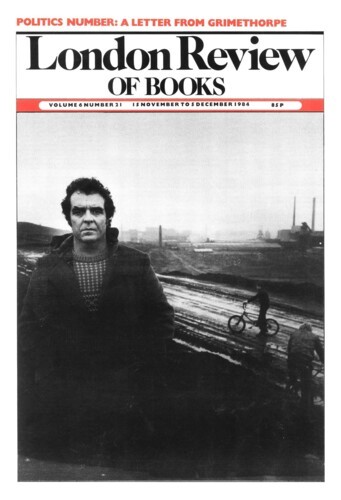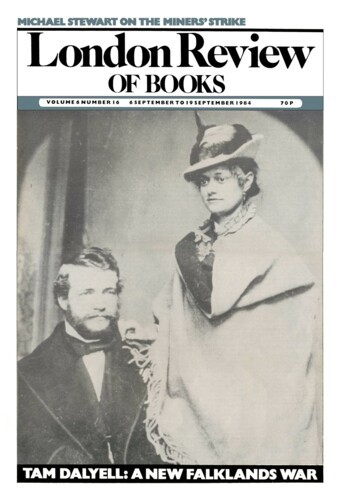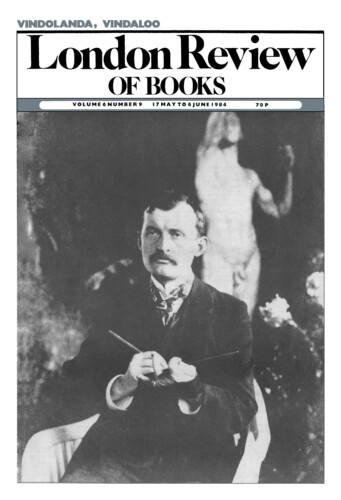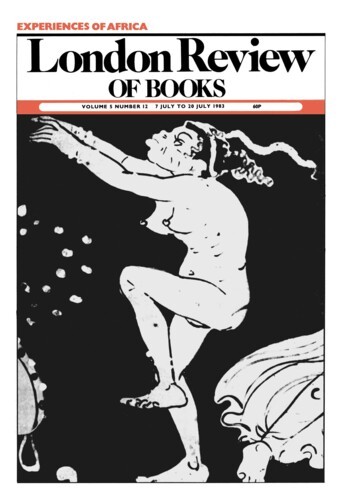From Sahib to Satan
Keith Kyle, 15 November 1984
‘It was generally agreed that the British had played a lamentable if not altogether duplicitous role in the Palestine situation and that their last-minute approaches and indications of a change of heart could have no effect on our policy.’ This is the only point of agreement that is recorded in the minute of an otherwise extremely disputatious encounter between President Truman and his closest advisers on the eve of the expiry of the British mandate in Palestine and the proclamation of the state of Israel. Besides demonstrating that General Al Haig was not without precedent in terming his British opposite number ‘a duplicitous bastard’, it betrays the degree of exasperation that frequently prevailed in the relations between a rapidly declining British Empire and a slowly emerging American superpower. Yet this was the period during which Truman and Attlee, Marshall and Bevin were laying the foundations of a lasting Western alliance system. The story of the British Empire in the Middle East at this time is the story of Ernest Bevin’s foreign policy with the successes left out; it is also in part Truman’s Presidency without the greatness. Yet the worst that was anticipated at the time – that Russia would walk in to fill any vacuum left behind by the capsizing of British power and prestige – did not occur.’





